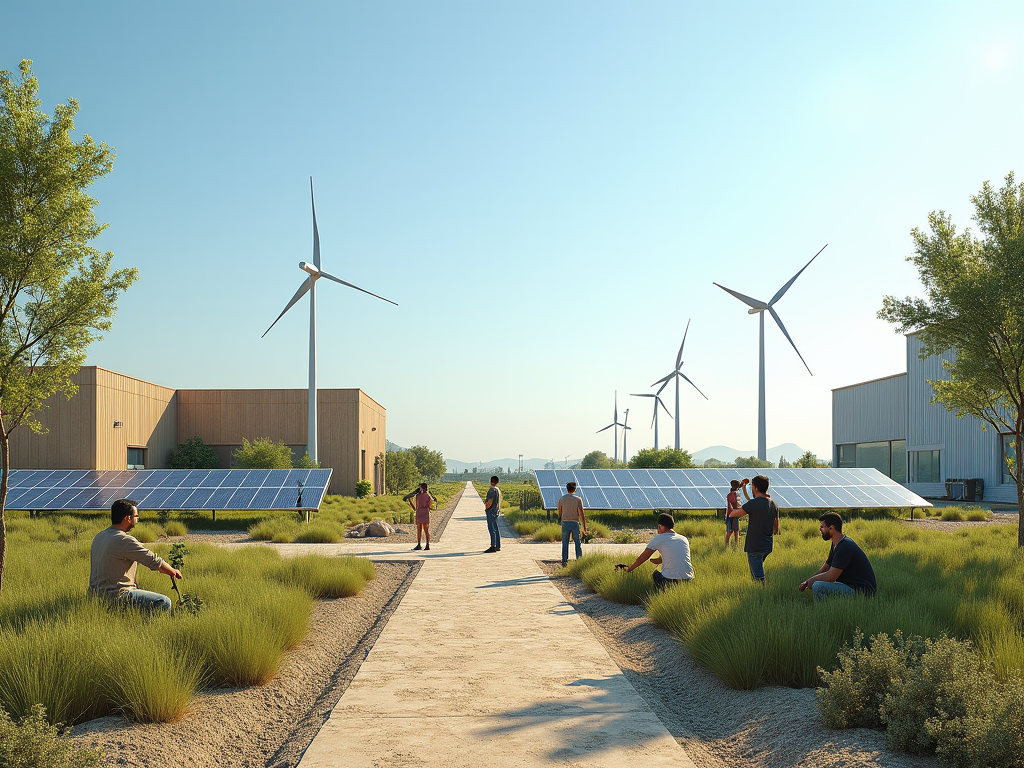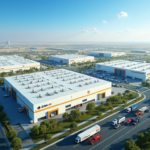The Khalifa Industrial Zone Abu Dhabi (KIZAD) represents a transformative blend of technology and innovation that enhances the business landscape of the region. Positioned as a key player in the Middle East, KIZAD offers a unique environment aimed at fostering high-tech industries and innovative approaches to manufacturing and services. This article delves into KIZAD’s technological advancements, strategic industries, key partnerships, and sustainable practices, highlighting how they contribute to a robust innovation ecosystem.
Strategic Location and Infrastructure

KIZAD’s strategic location between Abu Dhabi and Dubai gives it unparalleled access to international markets. This geographical advantage is complemented by advanced infrastructure, including state-of-the-art transportation networks and logistics facilities. The expansive area of KIZAD, spanning over 417 square kilometers, is equipped with deep-sea ports, direct road access, and proximity to an international airport, all of which facilitate seamless trade and connectivity. Additionally, KIZAD is designed to support a variety of industries from manufacturing to logistics and technology services. The integrated utilities provided—such as electricity, water, and telecommunications—help businesses operate efficiently and sustainably. This environment significantly enhances the innovation potential, enabling companies to leverage cutting-edge technologies effectively.
Key Sectors Driving Innovation

In KIZAD, several key sectors are driving the growth of technology and innovation. These sectors not only strengthen KIZAD’s competitive positioning but also contribute to the overall economy of the region. The primary sectors include:
- Manufacturing: Utilizing advanced robotics and automation technologies.
- Aerospace: Fostering innovation through R&D and high-tech production.
- Logistics: Implementing smart solutions to enhance supply chain efficiency.
- Renewable Energy: Promoting sustainable technologies and practices.
- Information Technology: Supporting digital transformation across various industries.
Each of these sectors benefits from dedicated resources in KIZAD, including incubators and accelerators aimed at nurturing startups and innovative projects. This multi-sectoral approach enhances collaboration between businesses and academia, spurring further investments and technological advancements.
Collaboration is at the heart of KIZAD’s innovation ecosystem, with numerous partnerships established to foster knowledge sharing and technological development. KIZAD collaborates with universities, research institutions, and industry leaders to create a synergistic environment that promotes innovation. These collaborations are crucial for developing practical solutions that address real-world challenges. The presence of technology parks and incubation centers within KIZAD serves as a catalyst for startups to scale and succeed. By offering mentorship, funding opportunities, and access to state-of-the-art facilities, these partnerships empower businesses to harness the full potential of their innovations. This ecosystem not only stimulates local talent but also attracts global expertise, reinforcing KIZAD’s position as a leading hub for technology and innovation.
Sustainability Initiatives and Future Trends
As global priorities shift towards sustainability, KIZAD is committed to building a green future through various innovative practices. The incorporation of sustainable technologies, such as renewable energy sources and waste management systems, showcases KIZAD’s dedication to minimizing its environmental footprint. Future trends in KIZAD will likely focus on enhancing digital infrastructure and smart city developments, integrating IoT and AI applications into operations. Furthermore, interdisciplinary research aimed at addressing sustainability challenges is expected to gain momentum, promoting a circular economy within the ecosystem. KIZAD is also anticipated to expand its focus on educational programs and workshops that raise awareness about sustainability, ensuring that the next generation of innovators is equipped to tackle these challenges. The combination of innovation and sustainability positions KIZAD as a forward-thinking ecosystem that is adaptable and resilient in an ever-changing world.
Conclusion
In conclusion, KIZAD represents a thriving technology and innovation ecosystem that leverages its strategic location, diverse sectors, collaborative networks, and sustainability efforts to foster an environment ripe for economic growth and entrepreneurial success. As it continues to evolve, KIZAD is poised to play a pivotal role in shaping the future of technology in the region, attracting investments, and driving innovation to new heights. The commitment to a sustainable and technologically advanced landscape will ensure that KIZAD remains a key player in the global economic arena.
Frequently Asked Questions
1. What industries are prominent in KIZAD?
The prominent industries in KIZAD include manufacturing, aerospace, logistics, renewable energy, and information technology.
2. How does KIZAD support startups?
KIZAD supports startups by providing incubation centers, mentorship programs, funding opportunities, and access to advanced facilities and networks.
3. What are the sustainability initiatives in KIZAD?
KIZAD’s sustainability initiatives include the use of renewable energy, waste management solutions, and promoting a circular economy.
4. How does KIZAD foster collaboration?
KIZAD fosters collaboration through partnerships with universities, research institutions, and industry leaders to enhance knowledge sharing and technological development.
5. What is the future outlook for KIZAD?
The future outlook for KIZAD includes a focus on digital infrastructure, smart city developments, and a commitment to sustainability and innovation in addressing global challenges.


